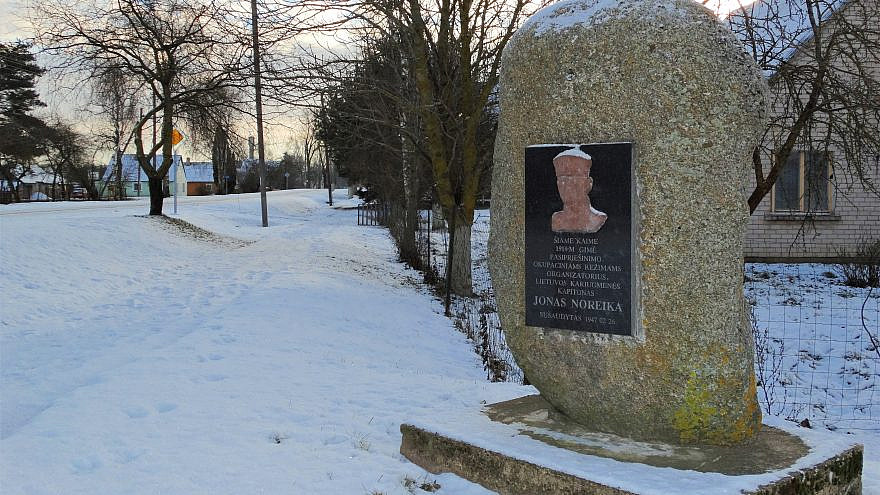More than 100 students and teachers from the Rambam Mesivta High School in Lawrence, N.Y., protested outside New York City’s Lithuanian Consulate in mid-March. Their signs proclaimed “No Honor for Noreika” and “Noreika—Is He Your Hero?”
The day school timed the protest to the week of Lithuanian Independence Day on March 11.
“The man I had believed was a savior, who did all he could to rescue Jews during World War II had, in reality, ordered all Jews in his region of Lithuania to be rounded up and sent to a ghetto where they were beaten, starved, tortured, raped and then murdered,” Foti wrote in 2021 in The New York Times.
When Rabbi Zev Meir Friedman, dean of Rambam, contacted the consulate before the school decided to protest, consulate officials told him that Noreika did not kill anyone. “They are denying that history. We can’t bring back the people that died, but at the very least, Lithuania should not honor a guy that killed Lithuanians,” he told a reporter. (The school didn’t respond to JNS queries.)
Bilvaisienė claimed that after its independence in 1990, Lithuania “moved forward profoundly and recovered many facts of the history of Lithuania including [the] Holocaust and painful loss of our citizens and community members. Actually, we were shocked by uncovering the historical facts, and today we are still in mourning and [a] healing process.”
When JNS pressed further for a specific comment on Noreika, the consulate shared a 303-word statement, which read, in part:
“Today public debates usually center on the role that several individuals known for their merit to anti-Soviet resistance played in the Holocaust. Such debates sometimes get to a political level and, as a result, sometimes lead to the decisions taken by non-governmental organizations or municipal politicians regarding the commemoration of specific individuals. The position of the Lithuanian Government, however, is clearly expressed—the truth must be established with the help of impartial and independent academic research … Regretfully, there have been examples in Lithuania, when recommendations of the central government have not been implemented yet by the local government. … This controversy needs additional attention and could be possibly solved by improving legislation. New legal regulation is on the way, at a moment.”
Of 220,000 Lithuanian Jews living in the country when World War II began, 95% were murdered. Noreika was executed on Feb. 26, 1947 for his anti-Soviet organizing. He was buried in a mass grave near Tuskulėnai Manor, a site infamous for containing the remains of others executed by the KGB from 1944 to 1947.


























